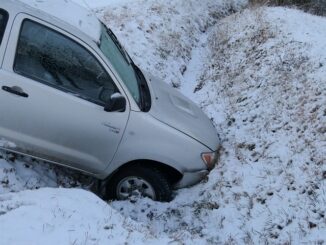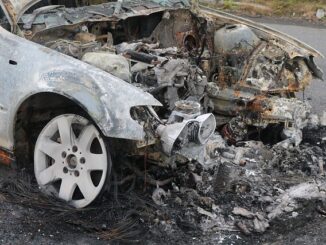
Car accidents can be stressful and overwhelming experiences, but knowing what to expect when dealing with the aftermath can make the process smoother. In Ontario, Canada, the Collision Reporting Centre (CRC) plays a crucial role in documenting and reporting accidents. Understanding how the CRC operates and when you should use its services can help you navigate the aftermath of a collision with confidence.
What is a Collision Reporting Centre?
The Collision Reporting Centre is a facility where drivers involved in certain types of collisions must report the incident to police and document details about the accident. These centres are designed to streamline the reporting process for minor collisions where no one is injured, and there is no criminal activity involved.
When Should You Use the Collision Reporting Centre?
You should use the CRC if:
- No one is injured: If there are any injuries from the accident, especially serious ones requiring medical attention, you should call emergency services immediately. The CRC is only for accidents where everyone involved is uninjured.
- No criminal activity or damage to property other than vehicles: The CRC is appropriate for accidents involving only vehicles and where there is no criminal activity (like impaired driving) or damage to property other than the vehicles themselves.
- Minor collisions: Typical scenarios include fender benders, parking lot collisions, or other minor accidents where the vehicles are still drivable and no significant damage has occurred.
What to Expect When Using the CRC
- Reporting to Police: Upon arriving at the CRC, you will be guided through the process of reporting the accident to the police. This involves providing details such as the location, time, and circumstances of the collision.
- Documentation: You will need to provide your driver’s license, vehicle registration, and insurance information. The CRC staff will also document the damage to your vehicle and any other relevant details.
- Vehicle Inspection: Your vehicle will be inspected and photographed to record the damage sustained during the accident. This documentation is crucial for insurance claims and any potential legal proceedings.
- Police Report: After completing the documentation process, the CRC staff will provide you with a copy of the police report. This report is essential for filing an insurance claim and can be accessed by your insurance company to assess the damage and liability.
- Insurance Claims: You can use the police report from the CRC to initiate a claim with your insurance provider. The detailed documentation from the CRC helps expedite the claims process and ensures that all parties involved have accurate information about the accident.
Benefits of Using the Collision Reporting Centre
Using the CRC offers several advantages:
- Efficiency: The CRC is designed to handle minor accidents quickly and efficiently, reducing the time you spend dealing with paperwork and waiting for police assistance at the scene.
- Accurate Documentation: The detailed documentation provided by the CRC ensures that all aspects of the accident are properly recorded, which is crucial for insurance claims and legal purposes.
- Convenience: CRC locations are often strategically placed for easy access, making it convenient for drivers involved in accidents to report the incident promptly.
Tips for Using the Collision Reporting Centre
To make the process even smoother, consider the following tips:
- Know the nearest CRC: Familiarize yourself with the location of the nearest CRC to your usual routes. This knowledge can save time and reduce stress if you ever need to use their services.
- Have necessary documents ready: Keep your driver’s license, vehicle registration, and insurance information easily accessible in your vehicle. This ensures you have everything you need when reporting an accident.
- Stay calm and cooperative: Accidents can be tense situations, but remaining calm and cooperative with CRC staff and other drivers involved can help resolve the situation efficiently.
Conclusion
In Ontario, Canada, the Collision Reporting Centre provides a valuable service for drivers involved in minor accidents. By understanding when to use the CRC and what to expect during the reporting process, you can navigate the aftermath of a car accident with confidence. Remember, the CRC is there to assist you in documenting the incident and facilitating the insurance claims process, ensuring that you have the necessary support during a potentially stressful time.



